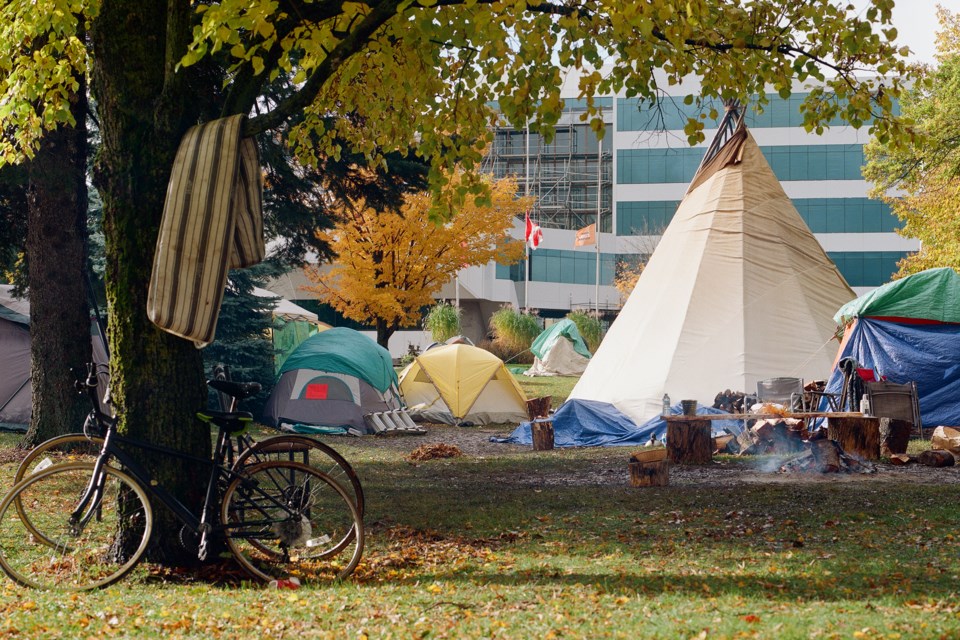The head of Social Services in the Sault says there is an increase in the number of visits being made to encampments in the city, as the issues facing people experiencing homelessness become more acute.
Mike Nadeau, CEO of Social Services, said in a recent phone interview there is currently space in the shelters in the city, but some people continue to live in encampments or sleep rough.
"We do have room in our shelter system right now, both the men and women shelters, but oftentimes we're finding the people that are living in an encampment are choosing to do so," said Nadeau.
He said an encampment could be a group of structures, or it could be a single tent.
Through the homelessness prevention team, Social Services and partner agencies Canadian Mental Health Association, Indigenous Friendship Centre, John Howard Society and Ontario Aboriginal Housing Services will attend encampments when they are reported. Nadeau said the team responds to every call it gets from the police or the public.
So far this year, the homelessness prevention team has responded to 12 calls for service, versus six last year.
"The team members will respond and conduct outreach and just try to get the person or persons engaged in the formal system," said Nadeau. "We have noticed that there has been a slight increase in the number of encampment responses that we've been going to this year."
Nadeau noted the team does not remove encampments.
"That's more of a police or municipal response," he said. "If someone is homeless and needs a space to go we would encourage them to enter into the shelter so that we can start to try to provide services to them."
Not only is the team conducting more encampment visits this summer, it's also seeing more acute problems in those encampments.
"We're seeing the level of need is increasing, maybe not just not specifically the number of individuals, but the individuals who are experiencing mental health issues and homelessness — their needs are just becoming higher and higher," said Nadeau.
"We have people who are responding daily to someone that may be in an encampment or living rough and it appears that they're struggling on the street," said Nadeau.
People experiencing homelessness could be living in encampments for a number of reasons, said Nadeau.
"You never know who's going to be living in an encampment. It could be someone associated with the justice system and it may be someone that's not," he said.
Although the number of encampment visits has increased locally this year, Nadeau said the issue is not limited to the Sault.
"When I'm talking to folks in Sudbury or Timmins or Thunder Bay or North Bay we don't seem to have the level of encampments as other communities in northern Ontario," he said.
Like many communities, the Sault does not have enough affordable housing to address the needs of its vulnerable population.
"We're trying to make our system better. We're trying to offer more affordable housing and it's getting harder and harder to do so," said Nadeau. "We are asking the federal and provincial government to maintain their existing budgets at minimum and not cut them."
A planned 58 per cent cut in federal funding in 2026 will have a devastating impact on our community, he said.
"It means we at Social Services will have less outreach staff available to respond to encampments and provide crucial support to those experiencing homelessness," said Nadeau.
When asked about the encampment that was situated on the front lawn of the Ronald A. Irwin Civic Centre in the fall of 2021, Nadeau noted that incident was more of a protest than an encampment.
"You will remember back when that protest was happening, we only had six shelter beds for men, right?" said Nadeau. "That was during COVID and St. Vincent Place was compressed. It was before the Verdi was opening up. It was before a lot of the new services that we brought online, like the CRC. They were in their planning stages. So it was a bit different time."
